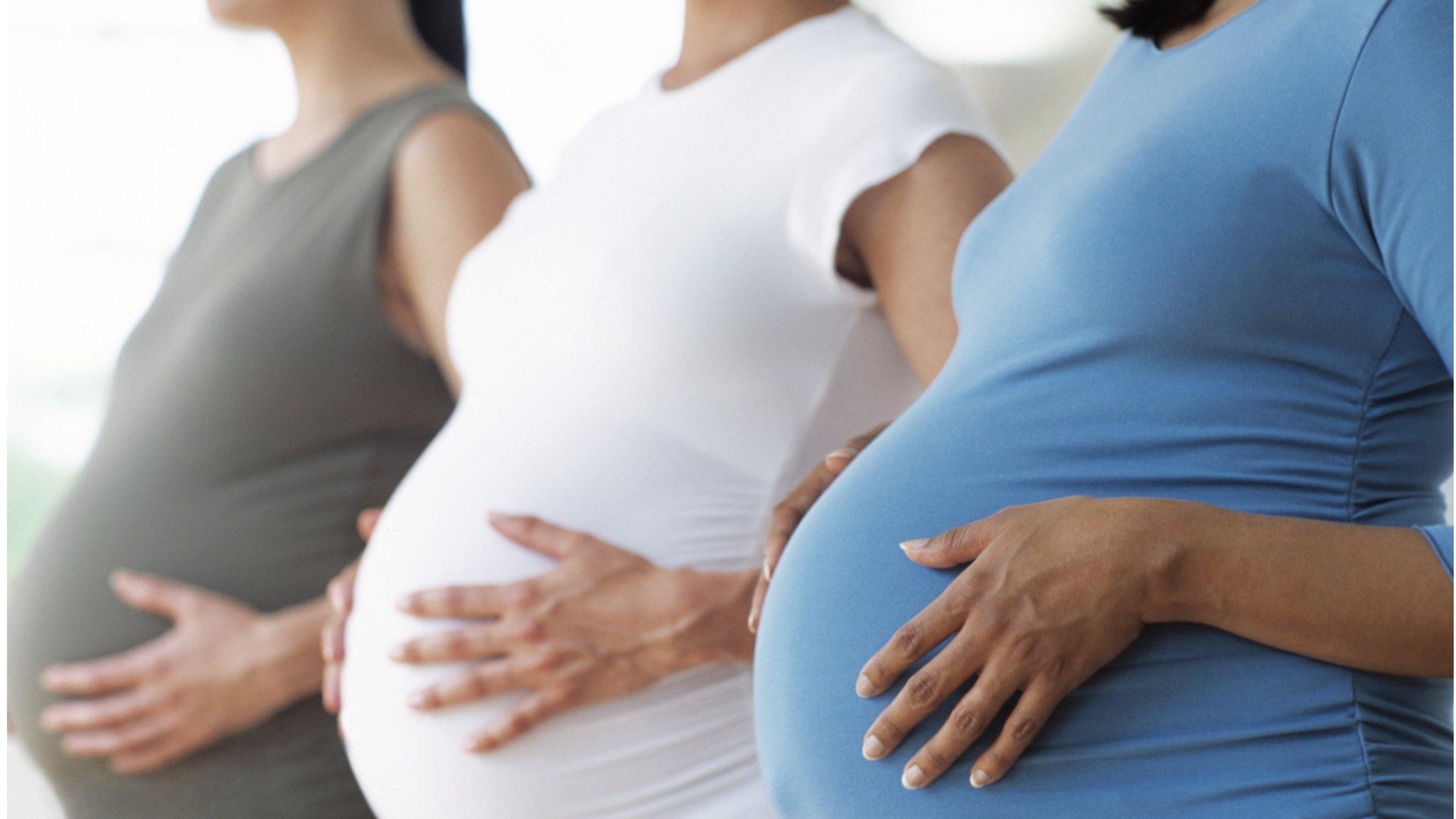Whooping cough vaccine a 'no-brainer' during pregnancy
- Published
- comments
Zoe was just four weeks old when she got whooping cough, and had to spend a month in hospital
Women are understandably risk-averse during pregnancy and are advised to avoid all medication if possible. Now they are being offered a four-in-one vaccine to protect against whooping cough.
So what are the potential benefits and are there any risks?
For the Chief Medical Officer, Prof Dame Sally Davies, the evidence is overwhelming: "It's a no-brainer. We have to do it."
Certainly the threat to infants is clear with nine deaths this year. Many more have been hospitalised, taking months to recover. The bacterial infection, also known as pertussis, can cause coughing fits, followed by a characteristic 'whoop' sound in young children as they struggle to breathe. It can lead to pneumonia and a range of complications in young babies. Treatment may involve weeks on a ventilator.
Professor Adam Finn, paediatrician and vaccine expert at Bristol Royal Hospital for Children, urges pregnant women to have the jab.
Almost all the deaths and serious cases have been in infants just a few weeks old, too young to be vaccinated.
Offering the jab to pregnant women between 28-38 weeks gestation will boost maternal antibodies against whooping cough and allow these to be passed to the unborn baby, giving them protection in the crucial first weeks of life.
Side-effects?
So the aim of the vaccine is to bridge the gap between birth and immunisation which happens at two, three and four months.
What about side-effects from the vaccine? Prof Sally Davies said: "There can be local side-effects - a bit of redness and soreness on the arm. But the overwhelming evidence is this will save lives and hospital admissions, and the distress that causes to the baby and its family."
There is no single vaccine against whooping cough, so the jab being offered to pregnant women will also protect against diphtheria, tetanus and polio.
Called Repevax, it has been given to all three year old children as a pre-school booster for nearly a decade and health officials point to its excellent safety record. A full list of the possible side effects can be found in the patient information leaflet, available here, external. The leaflet says it is not recommended for pregnant women, but the Department of Health points out that this is because they are routinely excluded from medical trials rather than because of concerns of harm.
The Joint Committee on Vaccination and Immunisation which advises government, says it has "no concerns about the safety of use of this vaccine at any stage of pregnancy."
The Department of Health says "as with all vaccines, there is the very rare possibility (approximately one in a million doses) of this vaccine causing a severe allergic reaction called anaphylaxis." This is something health teams are trained to deal with.
It is worth bearing in mind that if you read any patient information leaflet, the list of potential side-effects is usually extensive and often makes alarming reading.
Of course the prime worry for pregnant women would be that the vaccine might somehow damage their developing baby. Vaccine experts and public health officials say this is not a danger and the programme has the support of leading medical bodies such as the Royal College of Obstetricians and Gynaecologists.
All the component parts of the vaccine are inactivated, killed, so they can't cause the diseases they are protecting against.
Pregnant women have been routinely immunised against tetanus in the developing world for decades. Diphtheria and inactivated polio vaccine have also been used extensively.
The US has been offering a combined whooping cough, tetanus and diphtheria vaccine to pregnant women for the past 18 months.
No dilemma
Unlike most immunisation programmes this is unlikely to have a major impact on the spread of whooping cough because it is young adults who are most likely to spread the infection.
So instead it is a means by which women can personally protect their own child. Prof Adam Finn, a paediatrician and vaccine expert from Bristol Children's Hospital has treated many babies with whooping cough. He said: "Cases of whooping cough have taken off like a rocket and this winter is going to be a very risky time for young babies. There is no dilemma about whether to have the vaccine - mothers-to-be should not hesitate, but have the vaccine in order to protect their newborn baby."
Trend
Up until a couple of years ago there were no vaccines routinely offered to pregnant women in the UK. The swine flu pandemic changed that, and now all pregnant women are offered a seasonal flu jab.
The combined whooping cough vaccine adds four more diseases against which protection is being offered to the newborn child via its mother.
Prof David Salisbury, director of immunisation at the Department of Health sees this as an encouraging trend: "This is a huge opportunity to protect newborn babies before we can protect them with vaccines."
One potential target is Group B streptococcus, the most common cause of life-threatening infections in newborns. A vaccine against the bacterium is in clinical trials.
- Published28 September 2012
